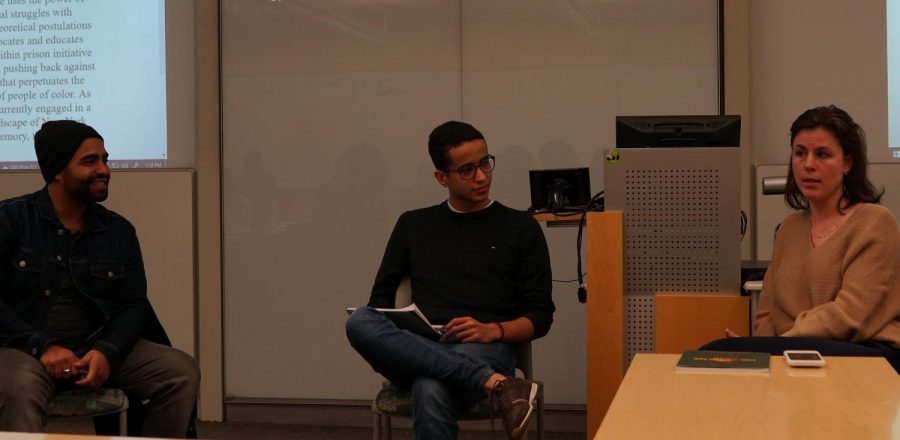Stern’s Political Economy Exchange invited José Diaz — a graduate of NYU’s Prison Education Program — and Raechel Bosch, a faculty member of NYU’s Prison Education Program, to speak at a panel on prison reintegration on Tuesday.
The event comes several months after the New York City Council voted to close Rikers Island prison, citing evidence of abuse, corruption and unsafe conditions cultivated by overcrowding, gangs and corrupt corrections officers.
Stern junior Andres Martinez, an Executive board member of SPEX, launched the presentation with a telling statistic — that 44% of inmates return to prison before the end of their first year of release.
Diaz, who was previously an inmate at the Wallkill Correctional Facility, said that for most of the incarcerated population, prison serves only as a punishment rather than an opportunity for reform.
Prison reintegration programs, such as PEP, seek to curb the rate of prisoners who end up back in jail — the recidivism rate — by providing services to ease an individual’s transition out of prison, including the opportunity to earn an associate’s degree from NYU. After being released, former inmates have access to student resources on NYU’s campus and are able to continue their studies. After the program, Diaz went on to pursue his master’s degree in the Department of Social and Cultural Analysis.
However, challenges remain for released inmates, including a lack of resources post-incarceration and discrimination, Diaz said. Post-release, students are followed by the stigma that surrounds incarceration.
“[The stigma] about how people of color are perceived especially in the grossly gentrifying city of New York,“ Diaz said. “What is the psychology that you’re carrying with you? It takes time to unravel those traumas and stigmas that have been placed on you.”
The reintegration program from NYU juxtaposes the university’s corporate partnerships with companies that are said to contribute to the prison-industrial complex such as NYU’s previous dining provider, Aramark, and its current provider, Chartwells, whose parent company — Compass Group — provides vending services to prisons in Florida, Michigan and Canada.
The work of PEP and other reintegration programs such as NYU School of Law’s Prison Reform and Education Project or the work of the Marron Institute of Urban Management, provides a learning moment for NYU, Bosch said.
“Our role [is] linking what’s happening in our direct community and bringing that into our work as an educational institution,” Bosch said.
Diaz called upon panel attendees and the broader New York City community to reflect on their own biases and work to understand many backgrounds.
“Speak to people! Give space to others to voice their opinions,” Diaz said. “Recognize privilege and where space for others needs to be made.”
Email Cristiano Rotolo at [email protected].


























































































































































